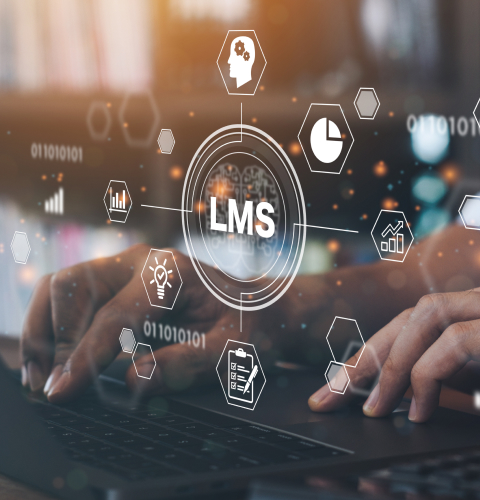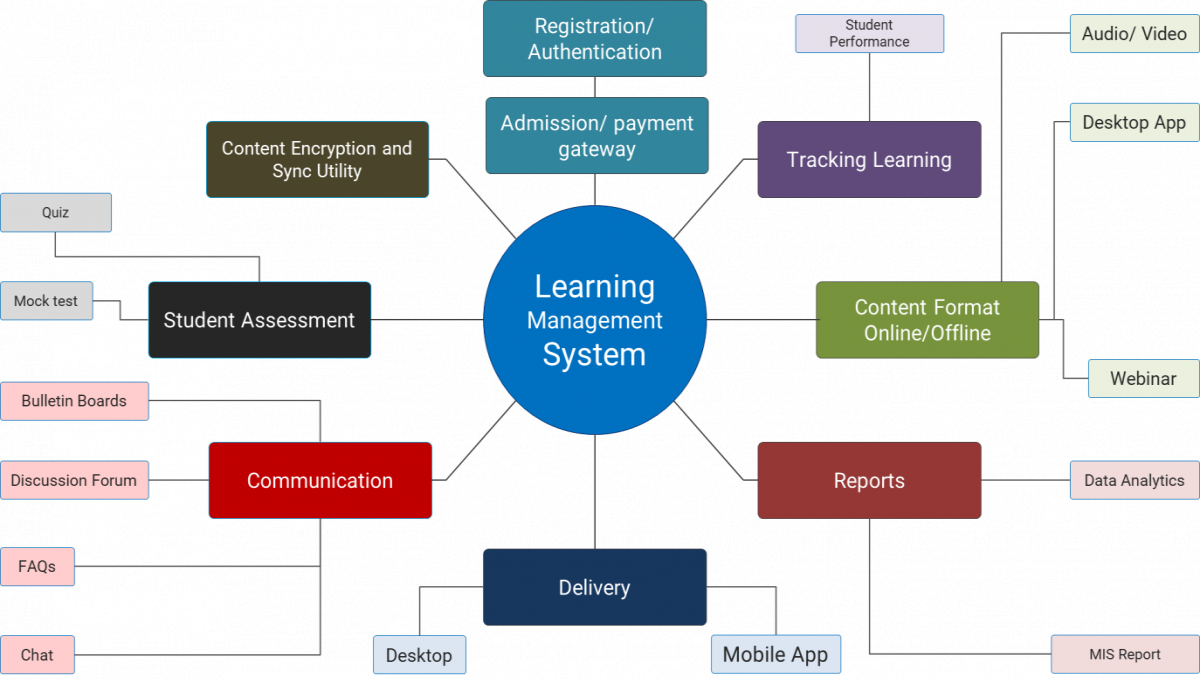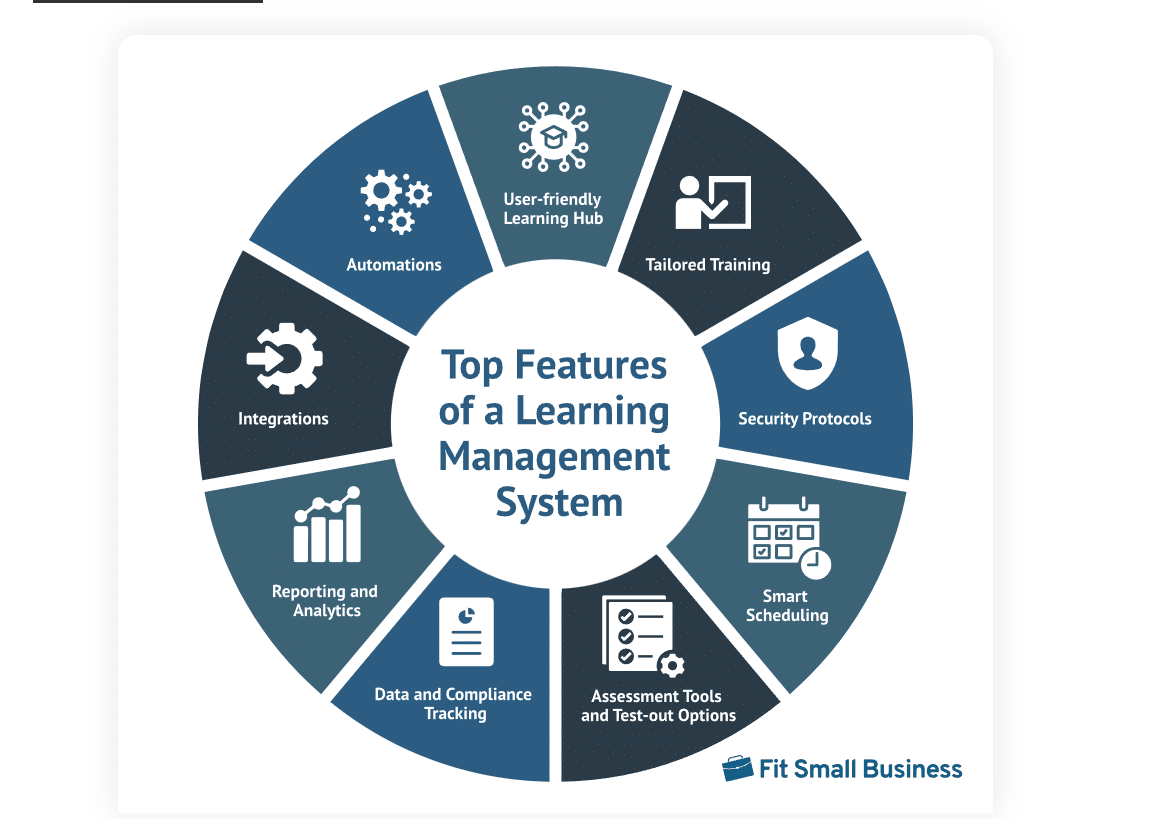LMS SG: Top Functions to Think About When Carrying Out an LMS in Singapore
LMS SG: Top Functions to Think About When Carrying Out an LMS in Singapore
Blog Article
Choosing the very best Understanding Management System for Your Company
Picking the optimum Learning Administration System (LMS) for your company is a diverse decision that requires mindful factor to consider of different components. From defining specific understanding purposes that reverberate with your critical vision to assessing user experience, each variable plays an essential duty in the total efficiency of the system. In addition, comprehending assimilation capabilities and guaranteeing scalability for future demands can not be overlooked. As companies strive for performance and development, the option of an LMS comes to be significantly significant. What are the crucial considerations that can affect your decision-making procedure?
Specify Your Understanding Purposes
Defining clear discovering purposes is vital for the effective application of a Knowing Administration System (LMS) These objectives serve as a roadmap, guiding the advancement of content, evaluations, and total training approaches within the LMS. By developing specific, measurable, achievable, appropriate, and time-bound (CLEVER) goals, companies can make sure that the understanding experiences are straightened with their calculated goals and student needs.
Reliable discovering objectives need to envelop what learners are anticipated to recognize or be able to do upon completion of a training course or training program. This clarity not just aids in material development yet likewise facilitates the evaluation of student development and the total effectiveness of the LMS. LMS Singapore. Well-defined objectives enable stakeholders to analyze whether the chosen LMS performances and attributes line up with their academic objectives.
Assess User Experience
Once discovering objectives have actually been developed, assessing individual experience comes to be an essential next action in choosing a proper Learning Monitoring System (LMS) Customer experience encompasses the total fulfillment and convenience with which students interact with the system. A well-designed LMS must facilitate user-friendly navigation, guaranteeing that customers can locate training courses, materials, and assistance easily.
To assess user experience, take into consideration conducting functionality testing with a depictive example of end-users. Key factors to assess include the LMS's user interface design, ease of access functions, mobile compatibility, and the clearness of guidelines offered.
Furthermore, examine the accessibility of assistance sources, such as tutorials and aid facilities, which can enhance the individual experience. The responsiveness of client support is likewise crucial; timely support can substantially mitigate disappointments that customers may experience. Ultimately, choosing an LMS that prioritizes customer experience not only enriches the learning process yet also promotes higher engagement and satisfaction amongst students.

Evaluate Integration Abilities
Acknowledging the significance of seamless performance, reviewing assimilation capacities is important when choosing an Understanding Administration System (LMS) An effective LMS ought to help with interoperability with existing systems, such as Human Resource Monitoring Equipment (HRMS), Client Connection Management (CRM) platforms, and various other instructional tools. This combination improves data circulation, minimizes management worries, and makes certain a natural knowing setting.
When analyzing an LMS, think about the kinds of combinations used. Search For Application Programming User Interfaces (APIs), Single Sign-On (SSO) abilities, and pre-built connectors that simplify combination procedures. Furthermore, verify the LMS's capacity to integrate with third-party devices, such as material libraries or evaluation platforms, which can significantly enrich the discovering experience.

Think About Scalability and Adaptability
As companies develop, the ability of a Discovering Management System (LMS) to scale and adapt ends up being increasingly crucial. A scalable LMS can suit development in user numbers, program offerings, and web content without endangering efficiency or individual experience. As businesses broaden, whether with increased employees, new places, or varied training requirements, the LMS needs to perfectly expand along with these adjustments.
Flexibility is similarly important; an effective LMS has to support different finding out modalities, such as online, combined, and mobile learning. This adaptability enables organizations Learning Management System Singapore to react quickly to emerging patterns in training and advancement, ensuring that they can provide appropriate and interesting understanding experiences - Canvas Singapore. In addition, the system needs to give adjustable attributes, enabling organizations to tailor the LMS to their certain demands and branding
In addition, an adaptable LMS ought to integrate easily with existing systems and devices, assisting in a natural learning community. Therefore, when selecting an LMS, it is important to analyze not just its existing capacities yet additionally its potential to adapt and grow abreast with the organization's tactical goals and progressing finding out demands. This insight can considerably improve the long-lasting practicality of the chosen LMS.
Testimonial Expenses and Budgeting
When reviewing an Understanding Administration System (LMS), evaluating prices and budgeting is vital to guarantee that the financial investment lines up with the company's critical objectives and monetary capacities. Organizations must begin by determining the overall price of ownership, which consists of licensing costs, application prices, upkeep, and any kind of extra expenses such as training and technological support.
It is vital to compare different LMS alternatives, as prices versions can differ considerably among vendors. Some systems might supply a subscription-based model, while others might bill an one-time charge. Organizations needs to additionally take into consideration the scalability of the LMS; as they grow, the cost structure may transform, influencing long-term budgeting.

Final Thought
Picking an appropriate Understanding Management System (LMS) is vital for attaining business knowing objectives. A detailed analysis of customer experience, assimilation abilities, scalability, and financial factors to consider makes sure that the chosen LMS lines up with calculated objectives and student demands. By systematically dealing with these elements, organizations can boost finding out outcomes, facilitate seamless procedures, and support future development. Ultimately, the right LMS serves as a crucial tool in fostering an effective knowing setting and driving business success.
Picking the optimum Understanding Administration System (LMS) for your organization is a complex choice that needs careful factor to consider of different components.Specifying clear knowing purposes is necessary for the effective execution of a Discovering Administration System (LMS)Once finding out purposes have been developed, reviewing user experience becomes an important next action in selecting an appropriate Knowing Monitoring System (LMS)As organizations evolve, the capability of a Knowing Management System (LMS) to range and adapt ends up being increasingly vital.Choosing an appropriate Discovering Management System (LMS) is crucial for accomplishing organizational discovering purposes.
Report this page